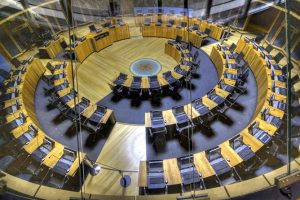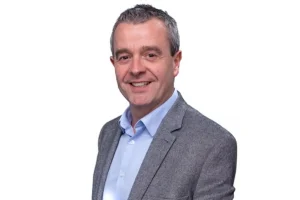AFTER nine months of delay, which had nothing whatsoever to do with the embarrassment its content could have caused to successive Conservative Prime Ministers, the long-awaited Intelligence Services Committee report into Russian interference in the UK’s democratic processes was published on Tuesday, July 21.
The Committee delivered its report to the UK Government last autumn, well before the announcement of December’s General Election. However, the Government delayed its release indefinitely.
PUBLICATION AFTER GRAYLING FAILED AGAIN
The report’s publication on Tuesday followed an attempt by Number 10 Downing Street to rig the election of a new Chair for the Committee. Former Attorney-General Dominic Grieve QC stood down at the last election.
Last week, Number 10 attempted to parachute in a patsy to replace Dominic Grieve, former Cabinet Minister Chris Grayling, hoping to kick the report even further into the long grass. The effort failed comically when the Government’s nominee lost a rigged election. The new Chair, Julian Lewis, a Conservative MP, had the Conservative whip withdrawn from him as a result of ‘disloyalty’ to Number 10.
The attempt to thwart the report’s publication – or to neuter its already heavily redacted form – rebounded badly on Boris Johnson and draws attention to some of the report’s more uncomfortable conclusions regarding the extent of Russian infiltration into the UK’s public life.
The report is a scathing assessment of the UK Government’s continued failure to either adequately assess or even investigate how Russia, or those associated with the Putin regime, attempted to influence the UK electorate.
KEY FINDINGS
• Russian influence in the UK is the new normal. Successive Governments have welcomed the oligarchs and their money with open arms, providing them with a means of recycling illicit finance through the London ‘laundromat’, and connections at the highest levels with access to UK companies and political figures.• This has led to a growth industry of ‘enablers’ including lawyers, accountants, and estate agents who are – wittingly or unwittingly – de facto agents of the Russian state.
• It clearly demonstrates the inherent tension between the Government’s prosperity agenda and the need to protect national security. While we cannot now shut the stable door, greater powers and transparency are needed urgently.
• UK is clearly a target for Russian disinformation. While the mechanics of our paper-based voting system are largely sound, we cannot be complacent about a hostile state taking deliberate action to influence our democratic processes.
• Yet the defence of those democratic processes has appeared something of a ‘hot potato’, with no one organisation considering itself to be in the lead, or apparently willing to conduct an assessment of such interference. This must change.
• Social media companies must take action and remove covert hostile state material: Government must ‘name and shame’ those who fail to act.
• We need other countries to step up with the UK and attach a cost to Putin’s actions. [The Russian state’s coordination of the Novichok attack in] Salisbury must not be allowed to become the high watermark in international unity over the Russia threat.
Several issues addressed in the published version of the Russia Report are covered in more depth in a Classified Annex which is unavailable for public scrutiny.
GOVERNMENT DIDN’T RECOGNISE THREAT
A statement by the Committee said: “There have been widespread allegations that Russia sought to influence voters in the 2016 referendum on the UK’s membership of the EU: studies have pointed to the preponderance of pro-Brexit or anti-EU stories on RT and Sputnik, and the use of ‘bots’ and ‘trolls’, as evidence.
“The actual impact of such attempts on the result itself would be difficult – if not impossible – to prove. However what is clear is that the Government was slow to recognise the existence of the threat – only understanding it after the ‘hack and leak’ operation against the Democratic National Committee, when it should have been seen as early as 2014 (when Russia attempted to interfere in the Scottish Independence Referendum). As a result, the Government did not take action to protect the UK’s process in 2016.”
“The Committee has not been provided with any post-referendum assessment – in stark contrast to the US response to reports of interference in the 2016 presidential election. In our view, there must be an analogous assessment of Russian interference in the EU referendum.”
In a press conference following the report’s publication, Chair of the Intelligence Services Committee, Julian Lewis recused himself from commenting on the report. He told media as he was not a member of the committee when it drew up the report, he would leave answers on its contents to two MPs who were members of it at the relevant time.
NO EFFORT TO INVESTIGATE
Members of the Intelligence Select Committee (ISC) said there was ‘no evidence’ that Russia sought to influence the 2016 Brexit referendum, but only because the government did not try to find out if it had.
One member, Stewart Hosie MP (SNP) said: “There has been no assessment of Russian interference in the EU referendum and this goes back to nobody wanting to touch the issue with a 10-foot pole.
“The UK Government has actively avoided seeking evidence as to whether Russia interfered.”
The report notes: “For example, it was widely reported shortly after the Scottish referendum that Russian election observers had suggested that there were irregularities in the conduct of the vote, and this position was widely pushed by Russian state media.
“We understand that HMG viewed this as being primarily aimed at discrediting the UK in the eyes of a domestic Russian audience.”
Russian propaganda was widely shared and effective in Scotland.
Over 87,000 people signed a petition demanding a re-vote following the Russian allegations of electoral fraud.
Kevan Jones, a former Labour defence minister, said all the evidence of Russian interference was there from the Scottish referendum
He said: “Short of a large van outside Downing Street, with a billboard on it saying, ’this is what was going on’, what more did the government need? Why was the decision taken not to look at the (Brexit) referendum?”
He said the Government lied about why Russia report couldn’t be published before the election.
Commenting on the report the Shadow Home Secretary, Kit Thomas-Symonds, said: “The report outlines a litany of hostile state activity, from cyber warfare, interfering in democratic processes, acts of violence on UK soil and illicit finance. On every level, the government’s response does not appear to be equal to the threat. While on key issues it is clear that there is no overall strategic response to this challenge – little wonder the government has been so keen to delay the publication.”
MONEY TALKS REALITY BITES
The Committee’s reports and its members’ comments leave little doubt that Theresa May actively declined to start an investigation into allegations of foreign interference in the 2016 Referendum campaign.
In a section about the referendum, the report says: “The written evidence provided to us appeared to suggest that HMG [Her Majesty’s government] had not seen or sought evidence of successful interference in UK democratic processes or any activity that has had a material impact on an election, for example influencing results.”
While any number of conspiracy theories swirl about her failure to at least ask GCHQ, MI6 or MI5 to look into the allegations, it is entirely likely that Mrs May’s decision was based in cold, hard realpolitik.
If an investigation had uncovered evidence of Russian interference, the consequences for the UK potentially outweighed any effect the interference had on the Referendum’s outcome.
Brexit hardliners within her party and fringe figures such as Nigel Farage would never have accepted any finding which undermined the legitimacy of the Referendum result. The result could have been political chaos and – quite possibly – civil disruption.
An investigation would also have provided an impetus for defeated Remain campaigners to challenge the result through the Courts.
The scope for revelations about prominent Conservative figures’ connection with Russia and Russian money might have caused severe embarrassment at a time the Government was trying to set the Brexit agenda.
For example, Alexander Termerko is a former senior apparatchik in the Russian Ministry of Defence. He is among the Conservative’s largest donors (£1.3m over seven years). Born in Ukraine when it was part of the former Soviet Union, Mr Termerko rose to prominence during the Yeltsin era. He became involved in manufacturing arms and an oil tycoon under Vladimir Putin. He fled to the UK when threatened with a politically-motivated prosecution. Mr Termerko has donated generously to several Conservative MPs, including Carmarthen West and South Pembrokeshire MP Simon Hart.
None of the above excuses the failure to investigate but, as one possible reading of events, it offers a compelling rationale for Mrs May’s and Mr Johnson’s reluctance to look too deeply into any foreign interference in the Brexit Referendum.
















